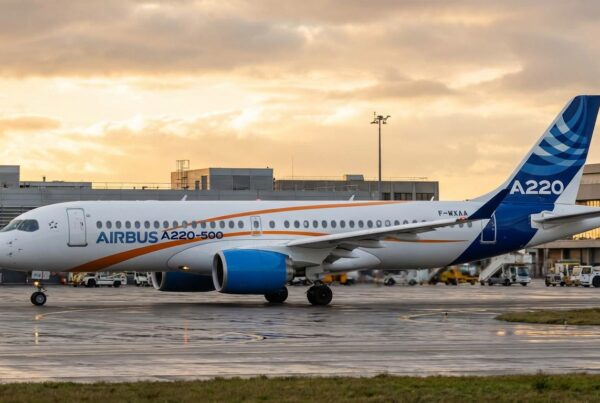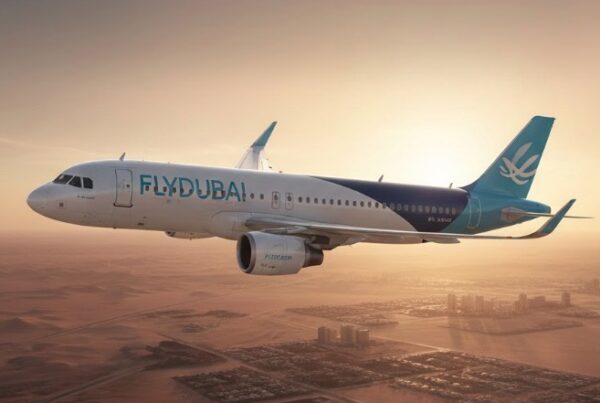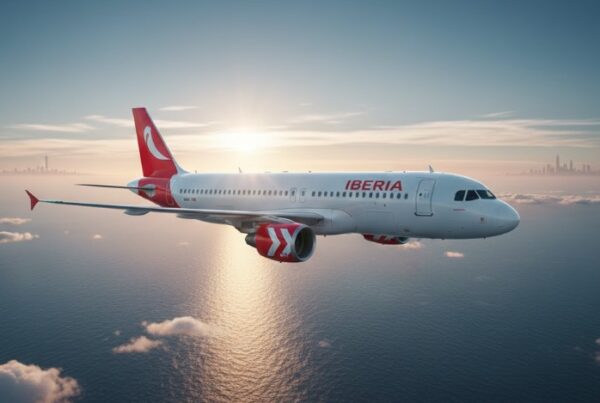The company Emirates reintroduces the venerable Airbus A380 A6-EDF, built in 2006. After an extended period of inactivity, this giant of the air is proudly reborn to offer passengers optimum comfort. This aircraft, a symbol of innovation and performance, embodies the company's aeronautical know-how and tradition. Thanks to its impressive dimensions and advanced technology, theAirbus A380 renews its role as a flagship for long-haul flights and new flying experiences. This relaunch marks an important strategic renewal forA380 in the world. A new era in air transport.
Emirates recently announced the reintegration into its passenger service of one of its most emblematic aircraft, the venerable Airbus A380. This giant of the skies, which has long marked the history of aviation, is back in the air after a period of inactivity, a reminder of the reliability and technical excellence that characterize aircraft in this category.
A historical and technological heritage
Designed to meet growing demand for capacity and ease congestion at major airports, the Airbus A380 was launched at the turn of the millennium. Development of the aircraft began in the late 1990s, and the first flight took place in April 2005. In October 2007, the A380 celebrated its entry into commercial service with the opening of new routes, notably with prestigious airlines such as Airbus.
The return of an Emirates fleet stalwart
In the Emirates fleet, the aircraft identified by the code A6-EDF is recognized as the oldest Airbus A380. Built as MSN007 in February 2006, this aircraft symbolizes the company's spirit of modernity and innovation. Since then, Emirates, which owns a total of 121 Airbus A380has demonstrated its commitment to aeronautical quality and safety.
Real-time monitoring and tracking
For aviation enthusiasts, following the journey of this re-launched A380 is a unique experience. The entire Emirates fleet can be tracked in real time on specialized platforms. Enthusiasts can watch the A380's movements on sites such as Flightradar24 or other dedicated mobile applications, which provide exclusive data on each flight.
The strategic implications of this operation
The reintegration of this venerable A380 into passenger service underlines Emirates' determination to maximize the use of its existing aircraft, while meeting the standards of comfort and performance expected by its customers. This strategic move is part of a wider policy aimed at diversifying the long-haul flight offer and responding to constantly evolving demand. Other airlines, such as Lufthansa and Etihad, have also capitalized on the potential of the A380 to strengthen their international routes, as detailed on Lufthansa and Etihad Airways.
Impact on the passenger experience
The return of the Airbus A380 to service is more than just a technical re-launch. It also brings a unique dimension in terms of passenger comfort and experience. Thanks to constant innovation and improved on-board services, Emirates continues to offer smooth, refined flights that meet the demands of modern travelers who seek both performance and well-being. To discover other aspects of the evolutions linked to the use of the A380, consult the dedicated article on triumphant return of the Airbus A380.
A global trend in the aeronautics industry
This relaunch comes at a time when international aviation continues to evolve, adopting advanced technologies and adapting to increasingly competitive markets. While a number of airlines are expanding their routes to key destinations such as LufthansaOther innovations are being developed to meet the specific needs of passengers on strategic routes.
Comparison of key aspects of the Airbus A380 relaunch
| Model | Airbus A380-861 |
| Seniority | The most venerable of the Emirates fleet |
| Date of manufacture | MSN007, February 2006 |
| Period of inactivity | 5 years out of service before relaunch |
| Operator | EmiratesA380 world leader |
| Capacity | Large capacity for long-haul flights |
| Strategy | Optimizing service and reducing congestion |




